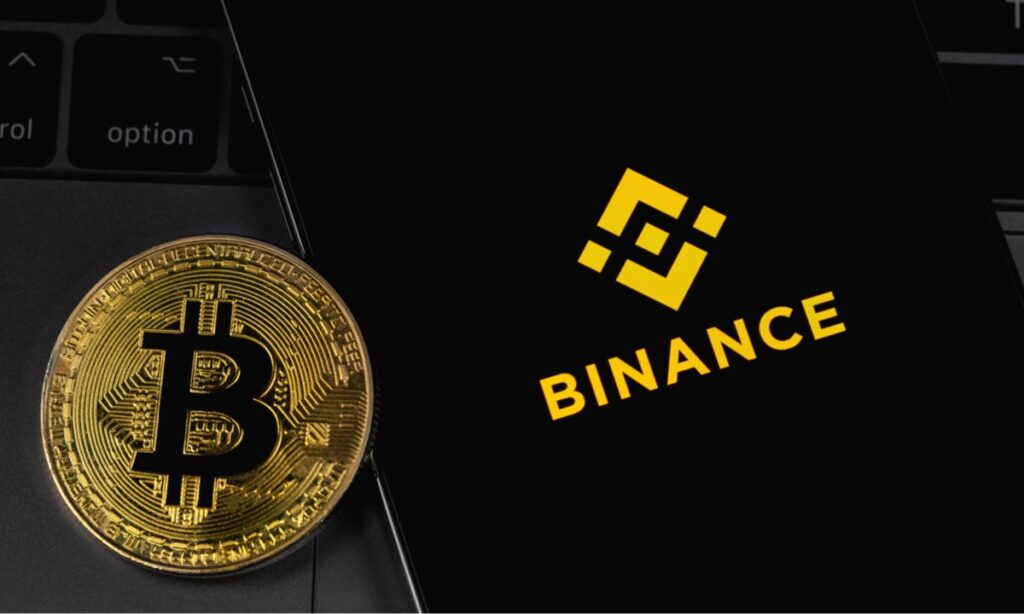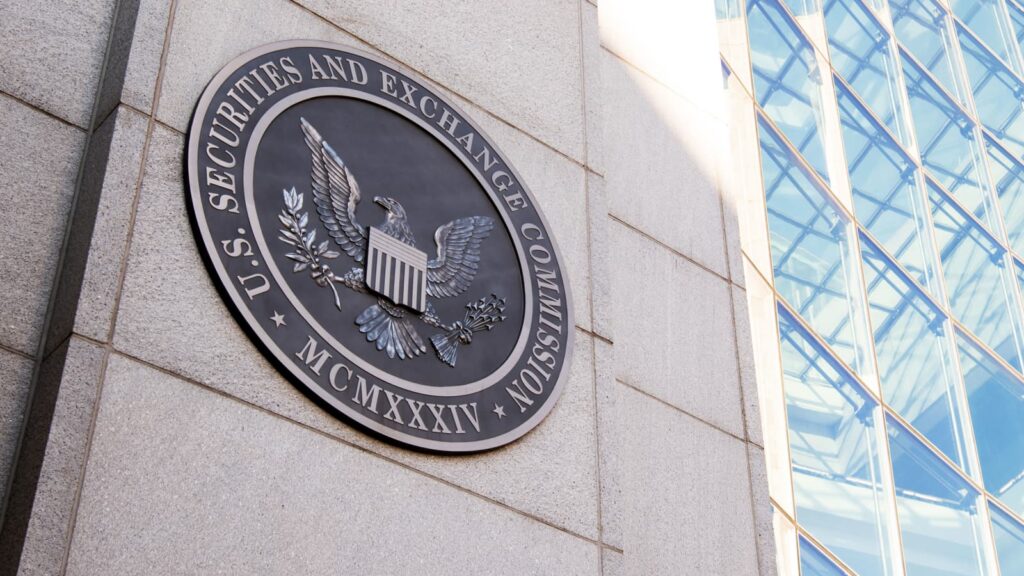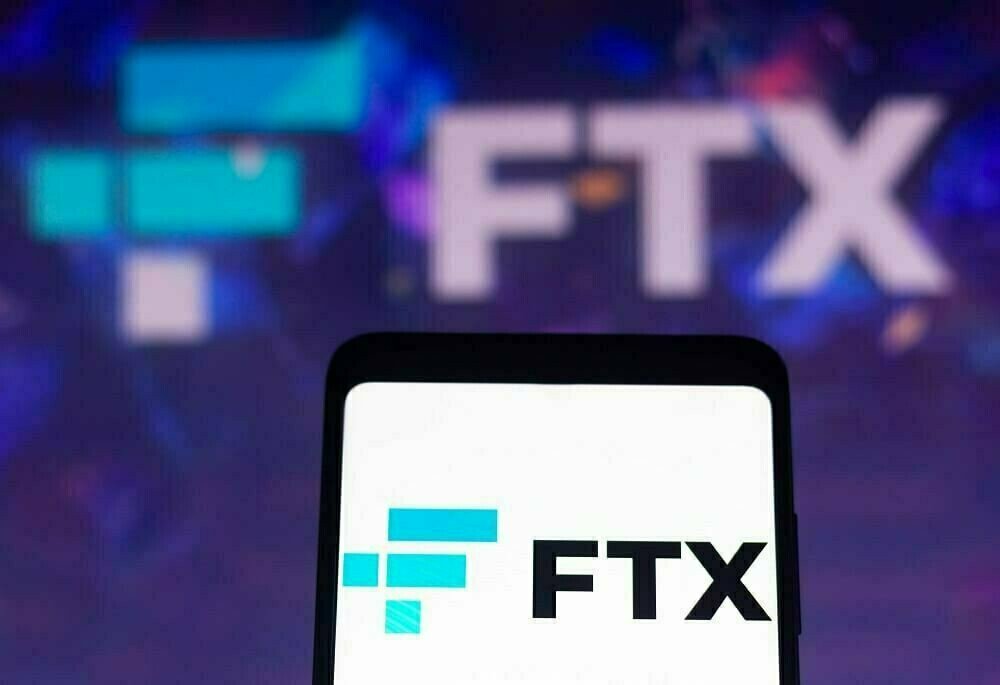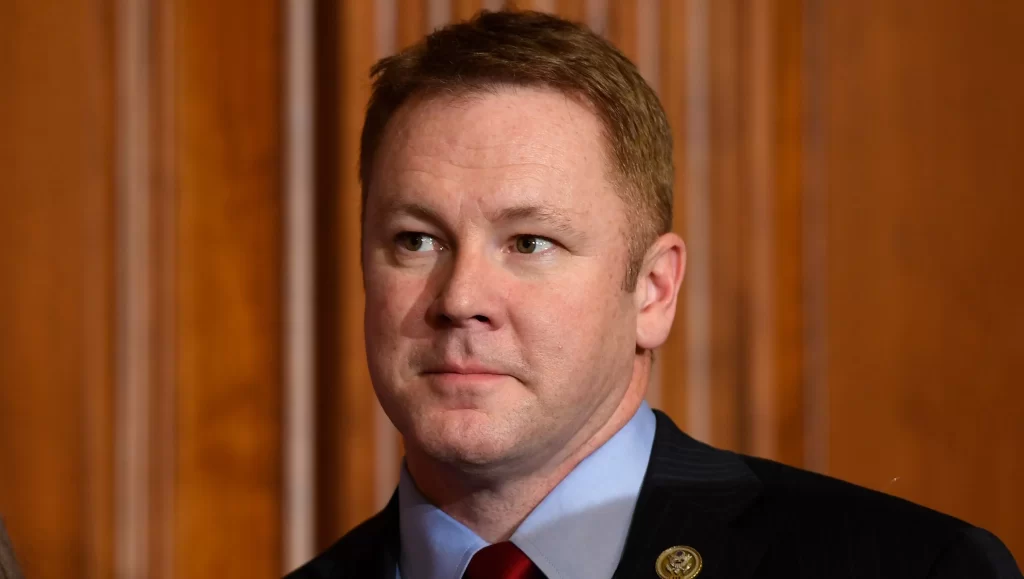The German Federal Financial Supervisory Authority, BaFin, has reportedly recommended that cryptocurrency exchange Binance withdraw its licensing application due to concerns regarding its CEO Changpeng Zhao (also known as “CZ”) and the company’s structure.
According to a report from The Wall Street Journal on July 28, BaFin expressed reservations about CZ passing the “fit and proper” test as per their regulatory guidelines.
The test ensures that managing directors, like CZ, possess the necessary professional qualifications, a good reputation, and can dedicate enough time to effectively manage the institution.
Additionally, BaFin raised concerns about the regulatory supervision of Binance due to the company’s complex structure.
In response, Binance announced on July 26 that it had voluntarily withdrawn its license application in Germany.
The decision was partly attributed to the company’s focus on aligning with the European Union’s Markets in Crypto-Assets (MiCA) framework.
In contradiction to The Wall Street Journal’s report, a Binance spokesperson told Cointelegraph that the story was inaccurate.
However, specific details about CZ were not provided in their response.
Meanwhile, Binance is facing legal actions in the United States brought forth by the Securities and Exchange Commission (SEC) and Commodity Futures Trading Commission (CFTC) for alleged violations of securities laws and trading guidelines, respectively.
READ MORE: Former Twitter Product Director Exposes Peculiarities of Working Under Elon Musk
In an attempt to dismiss the CFTC lawsuit, Binance’s lawyers filed a court motion on July 27, arguing that the commission had overstepped its authority.
Although no criminal charges have been filed at the time of publication, there have been reports of the U.S. Department of Justice (DoJ) investigating Binance for potentially violating U.S. sanctions on Russian entities.
In response to the DoJ probe, Binance’s chief strategy officer, Patrick Hillmann, announced his departure from the firm on July 6.
Despite being one of the world’s largest crypto exchanges, Binance does not have a physical headquarters.
CZ has reportedly resided in Dubai since 2021, making it challenging for the SEC to serve him a legal summons in June.
In conclusion, BaFin’s recommendation to withdraw the licensing application adds to the growing regulatory scrutiny faced by Binance, both in Germany and the United States.
These developments may have implications for the exchange’s operations and compliance efforts in the crypto market.
Other Stories:
Crypto.com Receives Approval from Dutch Central Bank
Crypto Mining Firm Explores Initial Public Offering (IPO) in UAE
SEC Commissioner Hester Pierce has voiced concerns over a recent statement by the agency advising accountants to refrain from non-audit work for cryptocurrency firms.
Pierce countered the suggestion made by the SEC’s chief accountant, Paul Munter, that accountants should adopt a binary approach when dealing with crypto companies.
Pierce fears that Munter’s proposal could deter crypto businesses from making sincere efforts to be transparent.
While she supports transparency, particularly regarding proof of reserves, Pierce is skeptical about why accounting firms should be wary of assuring crypto firms.
Pierce took to Twitter, questioning, “Why would we want to discourage good-faith efforts to provide more transparency?”
She raised her concerns about the potential chilling effect this may have on the transparency initiatives of crypto firms.
Munter argued that fractional engagements could lead crypto firms to selectively disclose certain business aspects as a complete audit to clients.
This practice, according to him, would lack transparency for investors.
READ MORE: Crypto Mining Firm Explores Initial Public Offering (IPO) in UAE
In Munter’s view, some crypto firms misleadingly market their retention of third-party reviewers, sometimes accounting firms, as conducting an “audit.”
He suggested that if an accounting firm finds its client making false statements about non-audit work, it should consider making a public statement or reporting the client to the SEC, a process he termed a “noisy withdrawal.”
Reacting to Munter’s statement, Mike Shaub, an auditing and accounting ethics professor at Texas A&M University, underscored the difficulty for auditors to make public statements given their confidentiality obligations.
He also raised concerns about some accounting firms leveraging their crypto expertise to enhance their reputations, yet becoming unresponsive when issues surface.
As this debate continues, the delicate balance between crypto firm transparency, the role of accounting firms, and investor protection remains a critical issue for the SEC and the broader industry.
Other Stories:
Former Twitter Product Director Exposes Peculiarities of Working Under Elon Musk
New cybersecurity regulations have been adopted by the United States Securities and Exchange Commission (SEC), mandating all public companies, including listed crypto firms, to promptly disclose any significant cybersecurity incidents within a strict four-day time frame.
The rules, effective as of July 26, will require disclosure when the incident is deemed “material,” except in cases where national security or public safety might be compromised.
The SEC’s initiative aims to strengthen cybersecurity risk management measures and safeguard the interests of investors.
To achieve this, the new regulations necessitate periodic reporting of a registrant’s policies and procedures for identifying and managing cybersecurity risks, along with regular updates about previously reported incidents.
SEC Chair Gary Gensler emphasized that these rules play a crucial role in benefiting investors, companies, and the overall market by ensuring that companies share material cybersecurity information transparently.
READ MORE; Best Crypto Projects to Invest in For The Next Bull Run
The scope of these regulations encompasses all publicly listed companies in the United States, including prominent players in the crypto industry such as Coinbase (COIN), Marathon Digital (MARA), Riot Blockchain (RIOT), and Hive Digital Technologies (HIVE).
The SEC outlined the rationale behind these new rules, citing the growing prevalence of digital payments and digitized operations within the workforce.
This, coupled with cybercriminals’ ability to monetize cybersecurity incidents, necessitated the implementation of stricter regulations to safeguard investors from potential threats.
Cryptocurrencies have notably been targeted by various cybercriminals, including the North Korean state-backed Lazarus Group, which has executed high-value exploits on cryptocurrency platforms, amassing over $850 million in ill-gotten gains.
It’s worth noting that the cybersecurity rules were initially proposed by the SEC in March 2022 but have now been fully adopted to enhance cybersecurity protection for investors and bolster overall market integrity.
The rules are set to be effective within 30 days following their publication in the Federal Register.
Other Stories:
Tennessee Realtor Couple Charged in $6M ‘Blessings of God Thru Crypto’ Investment Fraud
Ripple’s Chief Legal Officer Dismisses Concerns of SEC Appeal, Predicts Further Victory
Argentinian police have made a grisly discovery in the case of a missing cryptocurrency millionaire and Instagram influencer, Fernando Pérez Algaba.
The crypto trader was reported missing on July 18 after failing to return the keys to a rented apartment and not responding to phone calls.
Tragically, his remains were found dismembered in a suitcase less than a week later, on July 23, by children in Ingeniero Budge, a province near Buenos Aires.
Authorities found amputated legs and forearms in the suitcase and later discovered a torso on July 24 after draining the nearby stream.
On July 25, they found his head in a backpack. Fingerprints and tattoos confirmed the identity of the victim, and an autopsy indicated that Algaba had been shot three times before being dismembered.
Investigators believe that the murder may have been carried out by a professional group, and they suspect the motive could be debt-related.
Already, one suspect has been arrested in connection to the case.
READ MORE: KuCoin Denies Layoff Rumors Amidst Crypto Industry Stabilization
Fernando Pérez Algaba was well-known in the crypto trading community in Buenos Aires, where he ran an office with 25 other traders.
Additionally, he had gained considerable fame on Instagram, boasting over 917,000 followers. His posts typically featured luxury cars and his beloved dog.
Reports suggest that Algaba had significant debts, including 900,000 Argentine pesos ($3,300) in bounced checks, 1.2 million Argentine pesos ($4,400) owed to banks, and another debt of $70,000 related to a bounced check.
This tragedy occurred amidst a series of mysterious and sudden deaths of other crypto billionaires between October and December 2022.
Individuals such as MakerDAO co-founder Nikolai Mushegian, crypto broker Javier Biosca, Amber Group co-founder Tiantian Kullander,
Russian crypto billionaire Vyacheslav Taran, and major Bithumb shareholder Park Mo all suffered untimely demises during this period, sparking wild theories within the crypto community.
As the investigation into Algaba’s death continues, his friends, family, and followers mourn the loss of a prominent figure in the crypto and social media world.
The incident serves as a grim reminder of the potential dangers and risks that can accompany wealth and fame in the digital age.
Other Stories:
Best Crypto Projects to Invest in For The Next Bull Run
Ripple’s Chief Legal Officer Dismisses Concerns of SEC Appeal, Predicts Further Victory
Tennessee Realtor Couple Charged in $6M ‘Blessings of God Thru Crypto’ Investment Fraud
FTX, a bankrupt crypto exchange, and Genesis, a crypto lender, have taken a significant step towards resolving their claims in the ongoing bankruptcy case.
On July 27, both companies’ legal counsels communicated that they had reached an agreement in principle to settle the dispute, as reported to bankruptcy Judge Sean Lane.
The details of the settlement were not disclosed in the letter, but it aims to address the claims brought by FTX against Genesis debtors and vice versa.
Additionally, the agreement would withdraw any pending motions related to these claims. Both parties intend to promptly document the settlement and seek court approval.
In order to finalize the terms of the agreement, FTX and Genesis have requested the court to adjourn upcoming deadlines for current motions and due briefs.
Previously, FTX had claimed that Genesis owed them as much as $4 billion, but this amount was later reduced to $2 billion in a letter addressed to Judge Lane.
Genesis had filed for Chapter 11 bankruptcy protection in a New York bankruptcy court back in January, following the collapse of crypto hedge fund Three Arrows Capital.
READ MORE: 3 Best Crypto Projects That Will Boom In 2023 & During The Next Bull Run
Court filings reveal that Genesis is the largest unsecured creditor of FTX and its affiliates, with an outstanding amount of $226 million.
During the course of the bankruptcy proceedings, FTX debtors had objected to Genesis’ estimation that it was entitled to claims totaling zero.
However, it seems that these objections and disputes have now been resolved with the latest development of the agreement in principle.
Both FTX and Genesis have been operating under court supervision while trying to collect funds for their respective creditors.
The proposed settlement could be a significant step towards resolving their financial woes and settling the bankruptcy case between the two parties.
However, the actual details of the settlement and its implications remain to be seen until the documentation is finalized and court approval is obtained.
Other Stories:
Tennessee Realtor Couple Charged in $6M ‘Blessings of God Thru Crypto’ Investment Fraud
Ripple’s Chief Legal Officer Dismisses Concerns of SEC Appeal, Predicts Further Victory
KuCoin Denies Layoff Rumors Amidst Crypto Industry Stabilization
Ripple’s Chief Legal Officer, Stuart Alderoty, dismissed concerns about a potential appeal by the United States Securities and Exchange Commission (SEC) following the landmark ruling on Ripple earlier this month.
He believes that if the case goes to appeal, the court might further consolidate Ripple Labs’ partial victory over the financial regulator.
Alderoty reiterated his position that the XRP token does not qualify as an investment contract and that Ripple is ready to face any appeal brought by the SEC.
He expressed confidence in the judge’s ruling, stating that it was a faithful application of the law and that a court of appeals might even amplify it further.
The ruling on July 13 by Judge Analisa Torres concluded that XRP was not a security when sold to the public on cryptocurrency exchanges but could be considered a security when sold to institutional investors.
However, the SEC, in its ongoing case against Terraform Labs founder Do Kwon, expressed its dissatisfaction with the ruling and hinted at appealing the split-decision ruling in the future.
SEC lawyers asserted that retail sales of XRP should have been deemed securities and stated their intention to recommend further review.
SEC Chair Gary Gensler also expressed disappointment over the court’s decision on XRP, indicating that the regulator would continue to assess the ruling.
Despite the positive outcome for Ripple, Alderoty warned that the crypto sector still lacks a solid regulatory foundation.
READ MORE: Best Crypto Projects to Invest in For The Next Bull Run
He criticized the SEC’s “regulation by enforcement” approach, which he believes has caused crypto laws in the U.S. to lag behind other jurisdictions.
Alderoty predicted that if the SEC continues to claim that crypto assets are securities, it will likely lose ongoing cases where such claims are made.
However, he stressed the need for a rational, comprehensive, and understandable regulatory framework for crypto in the U.S. to bring it up to par with the rest of the world.
At present, XRP is trading at around $0.70, showing a significant increase of nearly 43% in the last month, according to Cointelegraph data.
Despite the recent legal victory, Ripple’s legal battle with the SEC underscores the importance of establishing clear regulations for cryptocurrencies in the United States.
Other Stories:
Worldcoin Sparks Controversy As It Launches Ecosystem Token
Former FTX CEO Accepts Gag Order Amidst Trial
Ripple CEO Brad Garlinghouse Criticizes SEC’s ‘Regulation by Enforcement’
Ant Group, backed by billionaire Jack Ma, is reportedly planning a strategic restructuring to streamline its Chinese financial business in preparation for a potential initial public offering (IPO) in Hong Kong.
According to anonymous sources cited by Bloomberg, the company intends to divest non-core operations, including blockchain and database management, from its main entity.
Once this restructuring is completed, Ant Group will apply for a financial holding license in China.
The move comes after the Chinese government intervened in Ant Group’s ambitious IPO plans in 2020, which sought to raise $30 billion and achieve a valuation of $226 billion.
At that time, the IPO was set to be the largest in history, surpassing records set by previous offerings like the Saudi Aramco IPO, which raised $29.4 billion.
With the restructuring and financial license application, Ant Group aims to navigate potential regulatory hurdles and pursue a Hong Kong IPO, rather than the previously intended dual listing in Shanghai and Hong Kong.
However, it’s worth noting that the plans are not yet finalized and could be subject to changes, as stated in the report by Bloomberg.
In a separate development, Japanese blockchain firm Earlyworks has announced the pricing for its IPO on the Nasdaq Capital Market.
Earlyworks focuses on grid ledger systems (GLS) and plans to offer 1.2 million American Depository Shares at $5 each.
The funds raised from the offering will be allocated to research and development for GLS and its System Development Kit (SDK).
Additionally, Earlyworks aims to onboard new talent, strengthen internal governance systems, and invest in other blockchain businesses.
The company’s GLS is a hybrid blockchain that integrates database technology for high-speed processing, with the goal of providing a general-purpose SDK for engineers and leveraging the technology in various industries.
READ MORE: Worldcoin Sparks Controversy As It Launches Ecosystem Token
Furthermore, other blockchain-related companies are also exploring IPO opportunities.
Chia Network, a layer-1 blockchain provider, has filed a proposal for an IPO with the United States Securities and Exchange Commission (SEC).
The offering’s price range has not yet been determined, but the IPO is expected to proceed once the SEC completes its review process.
Similarly, Bitcoin Depot, a major crypto ATM provider in the United States, recently announced its intention to go public on Nasdaq through a merger with fintech firm GSR II Meteora.
Upon its debut on the charts, the company’s stocks experienced an impressive rise of nearly 12%.
As the landscape of blockchain and cryptocurrency continues to evolve, companies in the sector are exploring various avenues to raise capital and expand their operations, with IPOs representing a significant option for growth and investment.
Other Stories:
Crypto Lending Firm Faces Service Disruption as Assets Seized by Regulator
Former FTX CEO Accepts Gag Order Amidst Trial
Ripple CEO Brad Garlinghouse Criticizes SEC’s ‘Regulation by Enforcement’
In a significant ruling on July 25, Judge Philip Jeyaretnam of the High Court of Singapore declared that cryptocurrency is a form of property that can be held in trust.
The judge emphasized that there is no essential difference between cryptocurrencies, fiat money, or even physical objects like shells, as long as they derive their value from the mutual faith vested in them.
The ruling came in response to a case brought by Bybit against its former employee, Ho Kai Xin. Bybit alleged that the employee had transferred approximately 4.2 million Tether (USDT) tokens, valued at $1.00 each, from the crypto exchange to her private accounts.
Following the court’s verdict, Ho has been ordered to return the money to Bybit, although she had claimed that a non-present cousin was in control of the relevant accounts.
While the ruling may seem straightforward, it carries essential implications for the legal status of digital assets. Jeyaretnam categorizes the stolen USDT, along with cryptocurrencies in general, as property, despite their lack of physical existence.
He likened these digital tokens to naming a river, despite the water it contains constantly changing.
This stance counters the common skepticism that cryptocurrencies lack “real” value, as the judge asserts that value is determined by collective human perception.
READ MORE: Worldcoin Sparks Controversy As It Launches Ecosystem Token
Furthermore, Jeyaretnam classifies cryptocurrencies as “things in action” under British common law, implying that they are subject to personal rights enforceable through legal action, rather than physical possession.
The judge’s decision refers to the consultation paper issued by the Monetary Authority of Singapore (MAS), which proposes segregation and custody requirements for digital payment tokens.
By stating that if such assets can be identified and segregated in practice, they can be legally held in trust, the judge strengthens the legal framework for cryptocurrencies in Singapore.
Moreover, the ruling cites Order 22 of Singapore’s Rules of Court 2021, which defines “movable property” to include various forms such as cash, debt, deposits of money, bonds, shares, securities, and cryptocurrencies or digital currencies.
This judgment echoes a similar landmark ruling made by the High Court of Justice in London in May 2022, where nonfungible tokens (NFTs) were recognized as “private property.”
Such decisions set essential precedents for individuals investing in NFTs, as they provide greater assurance that their property rights will be protected by the courts.
Overall, Judge Jeyaretnam’s ruling in favor of considering cryptocurrencies as property capable of being held in trust represents a significant step forward in defining the legal status of digital assets and may have implications for future cases and regulations in the evolving landscape of cryptocurrency.
Other Stories;
Ripple CEO Brad Garlinghouse Criticizes SEC’s ‘Regulation by Enforcement’
Former FTX CEO Accepts Gag Order Amidst Trial
Crypto Lending Firm Faces Service Disruption as Assets Seized by Regulator
In a remarkable turn of events, a dormant Bitcoin (BTC) wallet that had remained untouched for 11 years has suddenly come to life, transferring its entire stash of over 1,037 Bitcoin. At current market prices, this amounts to a staggering $31 million worth of BTC.
The transfer occurred at a Bitcoin price of $29,956 and took place at block height 799701, around 10:51 am UTC on July 22, as reported by BitInfoCharts. According to on-chain analytics platform Lookonchain, this long-dormant address had acquired the 1,037 BTC back on April 11, 2012, when the price of Bitcoin was just $4.92, valuing the stash at a modest $5,108 at the time.
The recipient of this massive transfer appears to be a fresh wallet address identified as “bc1qt180…,” which now holds the considerable sum of $31 million in BTC, according to data from blockchain aggregator Blockchair.
Notably, the original Bitcoin wallet that initiated the transfer had previously peaked in value at $71.6 million when Bitcoin reached its all-time high price of $69,044 on November 10, as per cryptocurrency price platform CoinGecko.
Interestingly, the United States government has also been involved in significant BTC transactions. Just ten days before this particular transfer, the U.S. government transferred nearly 10,000 BTC, equivalent to $299 million, in relation to the Silk Road seizure.
However, it remains unclear whether these funds were sent to cryptocurrency exchanges or remain under the custody of the Justice Department.
READ MORE: Report Reveals Alarming Surge in Cryptocurrency Use by ISIS Terrorists
This event adds to a list of other enigmatic wallet movements that have taken place recently. On June 11, a mysterious Bitcoin whale moved 1,400 BTC worth $36 million at the time, opting for a Pay-to-Taproot address, potentially to enhance privacy, according to CryptoQuant CEO Ki Young Ju.
In April, another intriguing Bitcoin address transferred 2,071 BTC, valued at $60 million, almost a decade after acquiring them at a price of $663, again reported by Lookonchain.
Despite these high-value transfers, an impressive 55% of BTC has not moved in over two years, as shown in a chart by on-chain analytics firm Glassnode, which was shared by cryptocurrency researcher Will Clemente.
As of now, BTC is priced at $30,082. Although the cryptocurrency has seen an 81.8% increase in 2023, it still remains 56.4% below its all-time high reached in November 2021, according to CoinGecko.
The market continues to be full of surprises as dormant wallets awake, governments engage in crypto movements, and investor behavior keeps evolving.
Other Stories:
2023 Ranking: 4 Best Crypto Projects To Buy
Terraform Labs Faces Uphill Battle Amidst Allegations, New CEO Discusses Road Ahead
Controversial Proposal Sparks Fierce Debate Among Members of Solana-Based Liquidity Network
United States Republican Representative Warren Davidson recently expressed strong opposition to the concept of central bank digital currencies (CBDCs), urging Congress to ban their development and criminalize any related efforts.
In a tweet on July 23, Congressman Davidson accused the Federal Reserve of constructing what he likened to the ominous “Death Star” from the Star Wars saga.
He asserted that CBDCs have the potential to corrupt money, transforming it into a tool of coercion and control.
To counter this perceived threat, Davidson emphasized the need for swift legislative action to outlaw the design, development, testing, and establishment of CBDCs.
Davidson’s concerns were prompted by a job posting from San Francisco’s Federal Reserve Bank for a “senior crypto architect” to work on a CBDC project.
Responding to a Twitter user’s comment, the congressman argued that money should serve as a stable store of value and should not be programmable under the control of a central authority.
Instead, he emphasized that sound money should facilitate peer-to-peer transactions without requiring permission from intermediaries.
The Federal Reserve has been actively exploring the technology behind CBDCs, considering the possibility of issuing a digital version of the U.S. dollar.
READ MORE: Controversial Proposal Sparks Fierce Debate Among Members of Solana-Based Liquidity Network
However, no concrete decisions have been made on this front. The prospect of a digital dollar has sparked controversy and is expected to be a prominent topic in the upcoming presidential election.
Representative Davidson is not alone in his apprehensions regarding a Fed-controlled digital dollar. U.S. presidential candidate and Florida Governor Ron DeSantis pledged to block any central bank digital currency if elected.
Governor DeSantis had previously signed a bill in May that restricted the use of CBDCs in Florida.
Another Republican, Tom Emmer, has also been vocal about the potential risks of state-controlled digital money.
He expressed concerns in March that a programmable CBDC could be easily exploited as a tool for surveillance and to suppress activities deemed politically unfavorable.
To address this, Emmer introduced the CBDC Anti-Surveillance State Act in February, aimed at preventing unelected bureaucrats in Washington, DC from encroaching on Americans’ financial privacy.
This bill received the endorsement of Texas Senator Ted Cruz, who introduced his own legislation to block CBDCs in March.
As the debate over CBDCs continues, it remains a contentious issue in U.S. politics, with differing viewpoints from lawmakers and potential implications for the country’s financial landscape.
Other Stories:
Terraform Labs Faces Uphill Battle Amidst Allegations, New CEO Discusses Road Ahead
2023 Ranking: 4 Best Crypto Projects To Buy
Report Reveals Alarming Surge in Cryptocurrency Use by ISIS Terrorists












